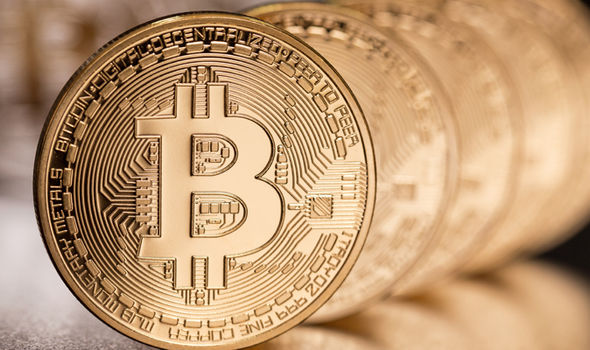This week the Bitcoin blockchain network registered one of the lowest values of its commission rates this year. The commissions even managed to get lower than the commissions in the Bitcoin Cash blockchain network. This phenomenon happens for the second time this year.
The statistics published by fork.lol illustrate how the average commission per transaction in the Bitcoin blockchain network is calculated. At the start of the day on Tuesday, the commissions were standing at 7.99 satoshis per byte and reached 15 satoshis per byte by the end of the afternoon. On the other hand, the commissions per transaction in the blockchain network of Bitcoin Cash were standing at around 20 satoshis per byte.
This comparison is validated only inside the satoshi per byte parameter of the blockchain network since when it comes to the value of the commissions in US dollars, the Bitcoin commissions are higher than the commissions in the Bitcoin Cash network due to the elevated price of the first and most popular cryptocurrency in the world. This way, the commission in the Bitcoin network in dollars oscillate between 0.1 dollars and 0.9 dollars, which are the prices that many users consider to be too expensive.
This is not the first time that Bitcoin has lower commissions than Bitcoin Cash. Back in February this year, the Bitcoin blockchain network reported its lowest commissions after the uncontrolled growth of the commission last year. In February, the price of the commissions in the Bitcoin network was 24.44 satoshis per transaction, while the price of the commissions in the Bitcoin Cash network was 24.47 satoshis per transaction.
Likewise, the Bitcoin users recently observed how the platform progressively lowered the price of the commissions per transactions until reaching the same record levels reported back in 2011. At the time, the commissions in the Bitcoin network were getting closer again to the commissions of the Bitcoin Cash network.
This decline of the commission in the Bitcoin blockchain network is largely owned to the recent activation of the SegWit function in the network, which is a solution for the scalability problems of the Bitcoin network that was gradually adopted by miners and cryptocurrency exchanges around the world.
Similarly, the adoption of the method for processing transactions in batches, a practice better known as batching, by the largest cryptocurrency exchanges and mining groups from around the globe also contributed to the descent of the prices of the commissions in the Bitcoin network.
It is interesting to compare the number of transactions per block between the two blockchain networks: Bitcoin processes between 1,000 and 2,000 transactions per block, while Bitcoin Cash processes a little bit over one hundred transactions per block. Now a question arises why the Bitcoin blockchain network has so big block size, especially if we know the transaction demand in reality requires little storage space, especially when the difficulty in the Bitcoin Cash blockchain network is so low.
The capacity that Bitcoin has to process a higher transaction demand represents an incentive per commission for the miners. In comparison, Bitcoin Cash has a lower transaction flow, which on average represents a lower incentive flow.
Besides the decline of the commissions paid by the users, fork.lol also remarks other interesting data related to the earning rates of the miners in both blockchain networks. In this sense, the statistics affirmed that Bitcoin is the platform where the miners earn higher rewards in US dollars.
On June 5th this year, Bitcoin reported an average reward for the miners of 695.5 satoshis per bytes, which equals to approximately 52 dollars per confirmation. On the other hand, the rewards in the Bitcoin Cash blockchain network are 7.89 satoshis per byte per operation, which results in a considerable difference between the two platforms.
This difference in the rewards for the miners occurs due to the different market volumes of the two cryptocurrencies, where Bitcoin is leading with a volume of 212.7 billion transactions on a daily basis and Bitcoin Cash is lagging with 16.44 million operations per day. Moreover, this data is subject to variables related to the mining difficulty, which suffers drastic adjustments in the blockchain network in Bitcoin Cash. Also, the data is also influenced by the value of each cryptocurrency on the market.
These radical comparisons of data between the two platforms caused a stir between the two communities and motivated some personalities to present a much more tempting offer for the users in their blockchain networks, although maybe not so tempting for the miners.
This was the case of nChain, CoinGeek and Craig Wright, two known companies and an influencer from the Bitcoin Cash ecosystem working at nChain as the Chief scientist. Wright published a Tweet on his official Twitter accounts in which he proposed to the Bitcoin Cash miners to not charge the rewards for their operations in the network. Wright wrote: “Miners should start thinking about no dust limit and some zero fee txs to spur adoption faster. Single satoshi tokens. Plan for the long term”
In this sense, Wright explains that a mechanism for commissions could be established that will allow the users to choose whether or not they would pay a commission depending on the speed they would like that transaction to reach its receiver. On the other hand, nChain and CoinGeek said: “Users will have more choice about how much (if anything) they wish to pay for sending a BCH transaction, depending on the speed they want. If a user wants an instant transaction, the user can choose from a range of small fees made offered by miners. But if a user is willing to wait perhaps 30-40 minutes for a transaction to be added to a block, the user can elect zero fee. This fosters a healthy competitive fee marketplace among miners, which will keep fees low for users and support Bitcoin Cash growth.”
Faced with this potential new mechanism, we would probably have to wait a few months for the new administration of commissions to show its advantages. These benefits are already available to the users of the Bitcoin blockchain network thanks to the constant changes and transformations of the network in order to improve the services offered to the users.




